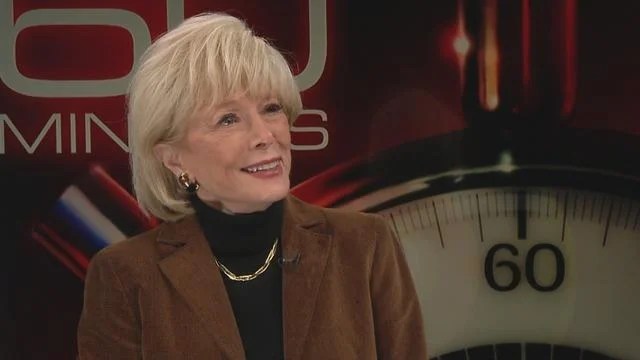The world of journalism is both challenging and exhilarating, and few platforms exemplify this better than "60 Minutes." For decades, this iconic television program has captivated audiences with its investigative reporting, in-depth interviews, and compelling storytelling. The "60 Minutes reporters" are more than just journalists; they are storytellers, truth-seekers, and, at times, the voice of the voiceless. Through their relentless pursuit of truth, they have brought to light numerous issues affecting society, from politics and corruption to human rights and environmental concerns.
The unique format of "60 Minutes" allows reporters to delve into stories that might otherwise go unnoticed. Each segment is crafted with care, ensuring that viewers not only receive information but also engage emotionally with the stories presented. As the program continues to evolve, the "60 Minutes reporters" remain at the forefront, adapting their methods while maintaining the core values of journalism that have made the show a staple in American households.
With a commitment to integrity and accuracy, the "60 Minutes reporters" have earned a reputation as some of the best in the field. Their work often leads to significant changes in public policy and raises awareness on critical issues. In this article, we will explore the lives, careers, and contributions of these remarkable journalists, shedding light on what it takes to be part of the "60 Minutes" legacy.
Who are the Notable 60 Minutes Reporters?
The roster of "60 Minutes reporters" has included many prominent journalists over the years. Some of the most notable figures include:
- Morley Safer
- Diane Sawyer
- Anderson Cooper
- Lesley Stahl
- Scott Pelley
What Makes the Reporting Style of 60 Minutes Unique?
The "60 Minutes reporters" employ a distinctive style that sets them apart from traditional news outlets. This approach includes:
- In-depth interviews with key figures
- Comprehensive research and fact-checking
- Engaging storytelling that captures the audience's attention
- A focus on human interest aspects of investigative stories
How Do 60 Minutes Reporters Prepare for Their Segments?
Preparation is key for "60 Minutes reporters." They typically follow a multi-step process, such as:
- Identifying relevant and impactful stories
- Conducting thorough background research
- Interviewing experts and stakeholders
- Crafting compelling narratives that resonate with viewers
What is the Impact of 60 Minutes Reporters on Society?
The impact of the "60 Minutes reporters" extends far beyond television screens. Their stories often lead to:
- Increased public awareness on critical issues
- Government investigations and policy changes
- Empowerment of marginalized voices
- Inspiration for young journalists
Can You Share Some Memorable Stories Covered by 60 Minutes Reporters?
Over the years, "60 Minutes reporters" have covered numerous memorable stories that have left a lasting impact on viewers. Some of these include:
- The uncovering of the Watergate scandal
- Investigations into corporate fraud
- Documentaries on social issues such as poverty and healthcare
- Interviews with world leaders and influential figures
What Skills Are Essential for 60 Minutes Reporters?
To thrive as a "60 Minutes reporter," individuals must possess a variety of essential skills, including:
- Strong communication and interviewing abilities
- Critical thinking and analytical skills
- Attention to detail and accuracy
- Resilience and adaptability in challenging situations
Biography of a Prominent 60 Minutes Reporter: Lesley Stahl
Lesley Stahl is one of the most recognized faces of "60 Minutes," known for her insightful interviews and investigative reporting. Her career spans several decades, during which she has covered a myriad of significant events and issues.
| Personal Details | Bio Data |
|---|---|
| Name | Lesley Stahl |
| Date of Birth | December 16, 1941 |
| Education | Boston University (Bachelor's in History) |
| Career Start | 1971 at CBS News |
| Notable Works | Investigative stories on a wide range of topics, including politics, healthcare, and social issues. |
Lesley Stahl's contribution to journalism is unparalleled, making her a cornerstone of "60 Minutes" and a role model for aspiring journalists around the world.
What Can We Expect from Future 60 Minutes Reporters?
The future of "60 Minutes reporters" looks promising as the media landscape continues to evolve. Anticipated trends include:
- Greater emphasis on digital reporting and multimedia storytelling
- Increased collaboration with social media platforms for broader reach
- Focus on emerging issues such as climate change and technology ethics
- Continued commitment to investigative journalism and holding power accountable
How Can Aspiring Journalists Follow in the Footsteps of 60 Minutes Reporters?
Aspiring journalists can learn a great deal from the "60 Minutes reporters." Here are some tips to help them on their journey:
- Study the work of established journalists and analyze their techniques.
- Gain practical experience through internships and entry-level positions.
- Develop a strong ethical foundation and commitment to accuracy.
- Stay curious and informed about current events and societal issues.
In conclusion, the "60 Minutes reporters" embody the essence of investigative journalism. Their dedication to uncovering the truth and sharing impactful stories has made a significant difference in society. As we look to the future, we can only hope that the legacy of these reporters continues to inspire and inform generations to come.



